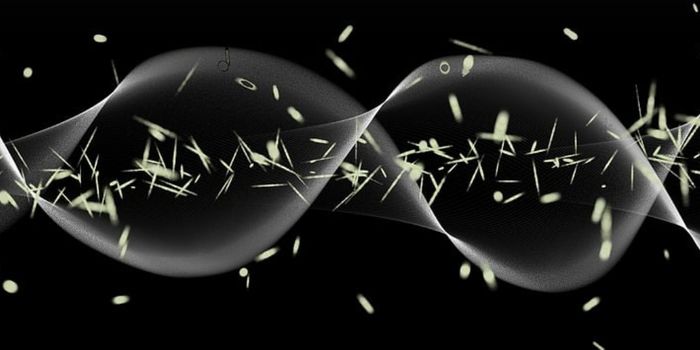Learning More About How Gene Variants Impact Cystic Fibrosis
Cystic fibrosis (CF) is an inherited disease caused by a genetic mutation in the cystic fibrosis transmembrane conductance regulator (CFTR) gene, which encodes for an ion channel. This channel sits in the cell membrane and allows chloride ions to pass through it, and when it’s mutated, water and ions are not moved properly, and mucus builds up in the lungs (as described in the video below). People with CF are far more likely to get chronic bacterial infections that live in that mucus. However, some CF patients don’t have as many of these infections. It’s been suggested that other genes are influencing the severity of the disease. Scientists have now revealed that another gene, RNF5, might be playing a role. The findings have been reported in eLife.
in this work, the researchers identified small genetic changes that reduce the expression of the RNF5 gene, and CF patients with these gene variants carry more of the mutant ion channel on their cell surfaces. The scientists suggested that even though these channels are not working correctly, it’s better that there’s more of them, compared to having none at all.
While new CF drugs have emerged (as outlined in the video below), they are extremely expensive and aren’t working for every patient that takes them.
"The cystic fibrosis field is trying to figure out what are the modifiers across the genome that increase or decrease the probability that an individual patient will respond to these expensive drugs," said senior author Kelly A. Frazer, Ph.D., a professor of pediatrics and director of the Institute for Genomic Medicine at UC San Diego School of Medicine. "RNF5 may be one of these modifier genes."
The RNF5 gene sits in a region called the Major Histocompatibility Complex (MHC), which carries the codes for molecules that sit on the surface of many types of cells. These proteins impact how the body responds to infection as well. While we all carry MHC genes, they are highly variable from person to person, and these differences can make people better or worse at fighting infection and more or less likely to get autoimmune diseases. However, the variability in this region makes it challenging to understand.
In this study, the researchers sorted the MHC gene variants into groups after collecting samples from 419 people, enabling them identify associations more easily.
"We've known there's an association between MHC genes and bacterial colonization in patients with cystic fibrosis, but no one knew why," explained Frazer. "We assumed it was due to MHC's involvement in the immune system. But now we know that's likely not the only mechanism -- different expression levels of RNF5 may also play an important role."
"This study uncovered a new aspect of cystic fibrosis -- one that could lead to new drug design and development, and allow clinicians to better tailor treatments," said the first study author Matteo D'Antonio, PhD. "But that's just one example of how we might employ this new genetic analysis technique. Now we have a road map, and we can apply it to other diseases and cell types."
Sources: AAAS/Eurekalert! via University of California San Diego, eLife








